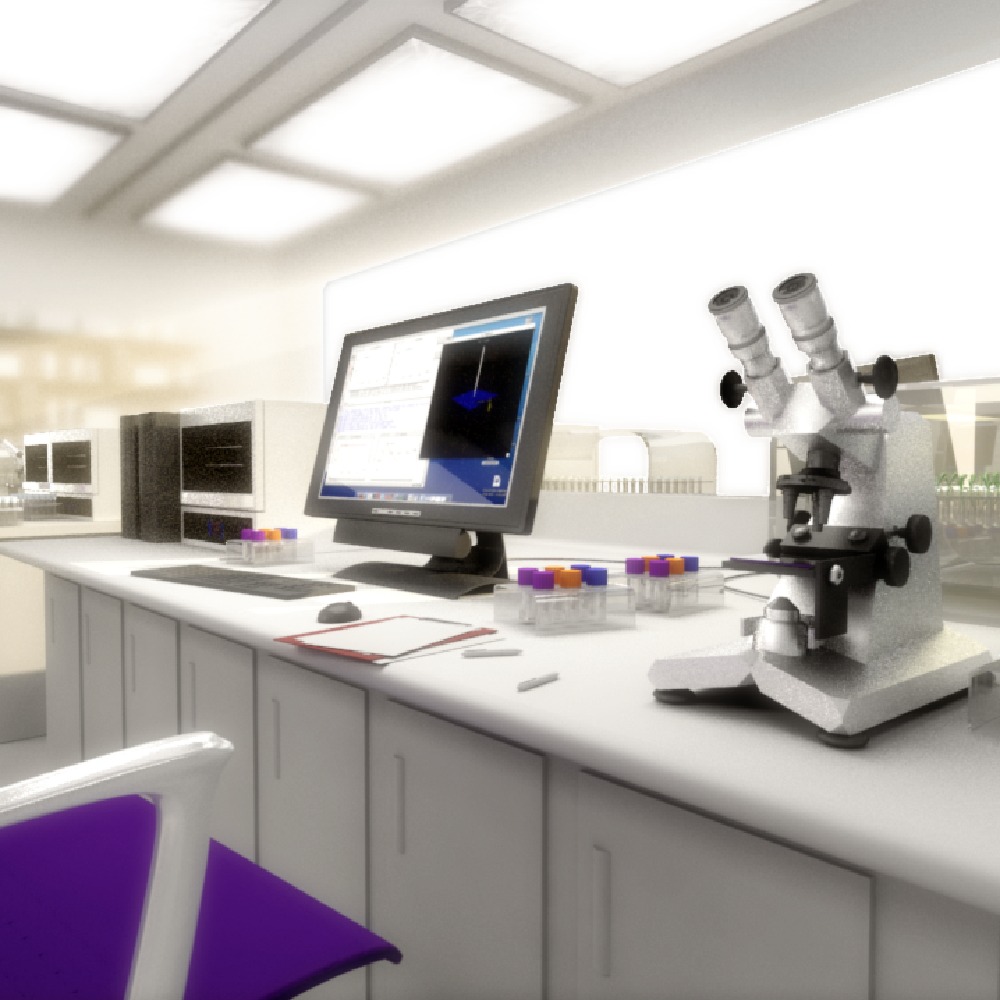
The online virtual lab
Alzheimer’s Research UK has created the first ever virtual lab tour designed to help the public understand how new dementia treatments are developed.
The Lab www.dementialab.org, launched today, takes visitors on an interactive journey through photo-realistic laboratory and hospital environments to learn about how research into diseases like Alzheimer’s takes place.
Over 820,000 people in the UK are living with dementia and these numbers are set to increase.
With over 40% of the UK population knowing someone close with dementia, and support for Alzheimer’s Research UK on the rise, interest in dementia science has never been higher.
Rebecca Wood, Chief Executive of Alzheimer’s Research UK, said: “Surveys into public attitudes around science reveal that while the majority of people agree that we should take an interest in science, many do not understand how scientists go about their work. People tell us that they feel research takes place behind closed doors so we wanted to break down the barriers and help give the public a flavour of what our researchers are up to. The Lab addresses this in a way that means even those who struggle to leave the house can learn about the different kinds of research under way to tackle the devastating diseases that cause dementia.”
The Lab allows visitors to travel through three main research areas at the scroll of a mouse. Starting with a basic research laboratory, visitors can watch videos and slideshows about how research is funded, and how unravelling the basics of diseases like Alzheimer’s and frontotemporal dementia can help in the search for answers.
Visitors then fly through the roof of the lab into a second environment, where they can learn about more clinical research such as brain scans, blood tests and how research using animals plays a crucial part in the process.
The final stage of the journey takes visitors into a waiting room, with videos and posters explaining how new treatments are tested in people.
The Lab also allows visitors to read the latest news stories about research in each of these areas. Visitors can connect using Facebook to share their visit with their friends and make The Lab experience more personally tailored to them.
Prof Stuart Pickering-Brown is a dementia scientist working to understand how a person’s genetic make-up could affect their risk of dementia. He said:
“The word ‘research’ often makes people think of microscopes and test tubes, but there is far more to dementia research than that. It seems that almost everyone I meet has been affected by dementia in some way and people are always so fascinated to know what we are doing in our laboratory. The Lab is a really innovative way for people to see for themselves the kind of work we do, why it is important and how it fits in with other kinds of research going on into dementia.”
Carol Franklin-Adams has explored The Lab with her husband Patrick, who was diagnosed with early-onset Alzheimer’s disease in 2003. She said:
“When Patrick was first diagnosed with Alzheimer’s, we felt completely lost. Your first instinct is to collect as much information as possible. Sadly, by finding out more we learnt that there were no effective treatments to slow or stop Alzheimer’s and so we became interested in supporting research. I had little idea about research into dementia, apart from the headlines I read in the paper, so The Lab is a great way to learn more. The fact that we can have this experience in our own home, means that we can sit together and see how our support can help others in the future. It is really inspiring.”
Alzheimer’s Research UK funds more than £20m of dementia research across the UK and is a leading commentator on new dementia research findings.
Tagged in Health Alzheimer's Dementia Alzheimer's Disease

